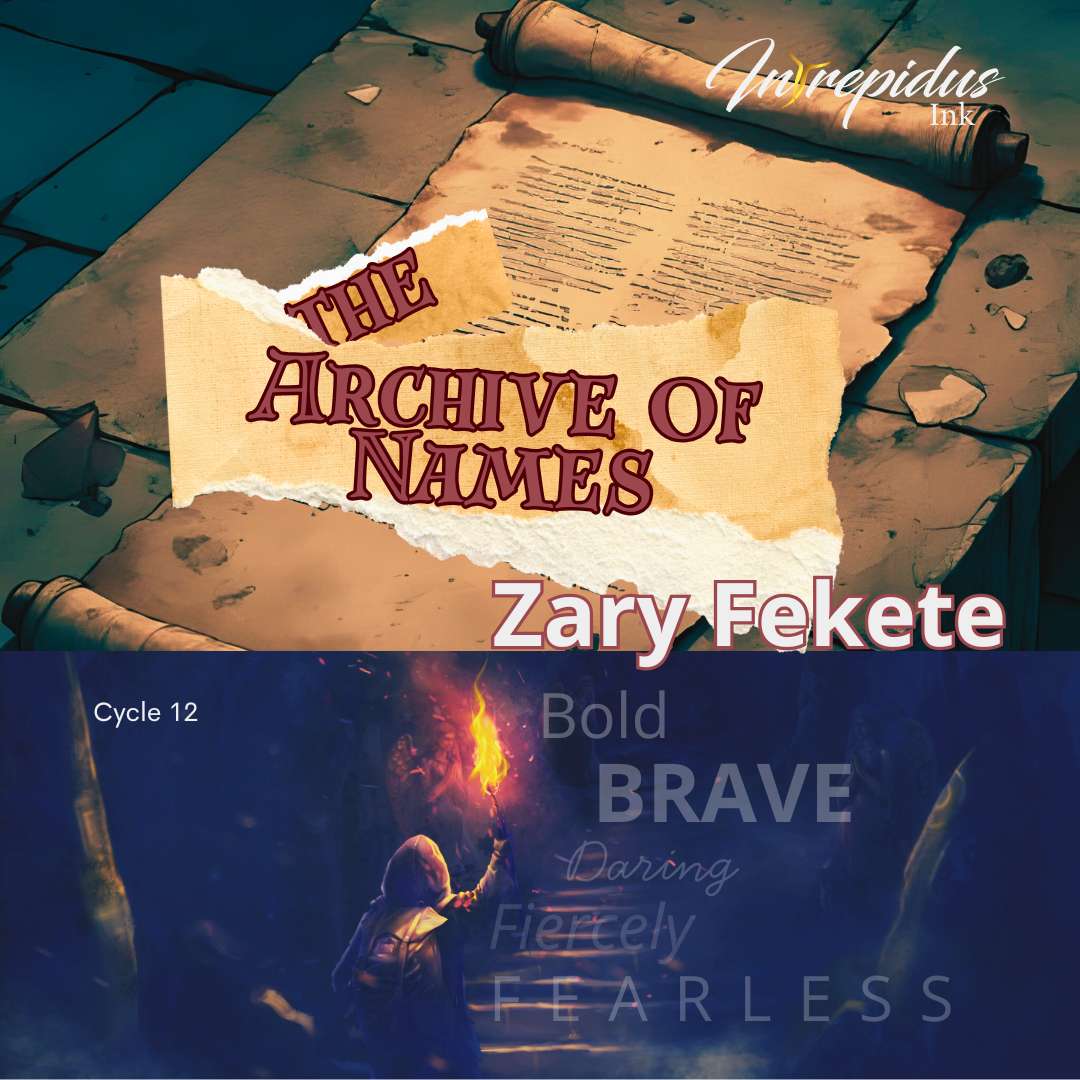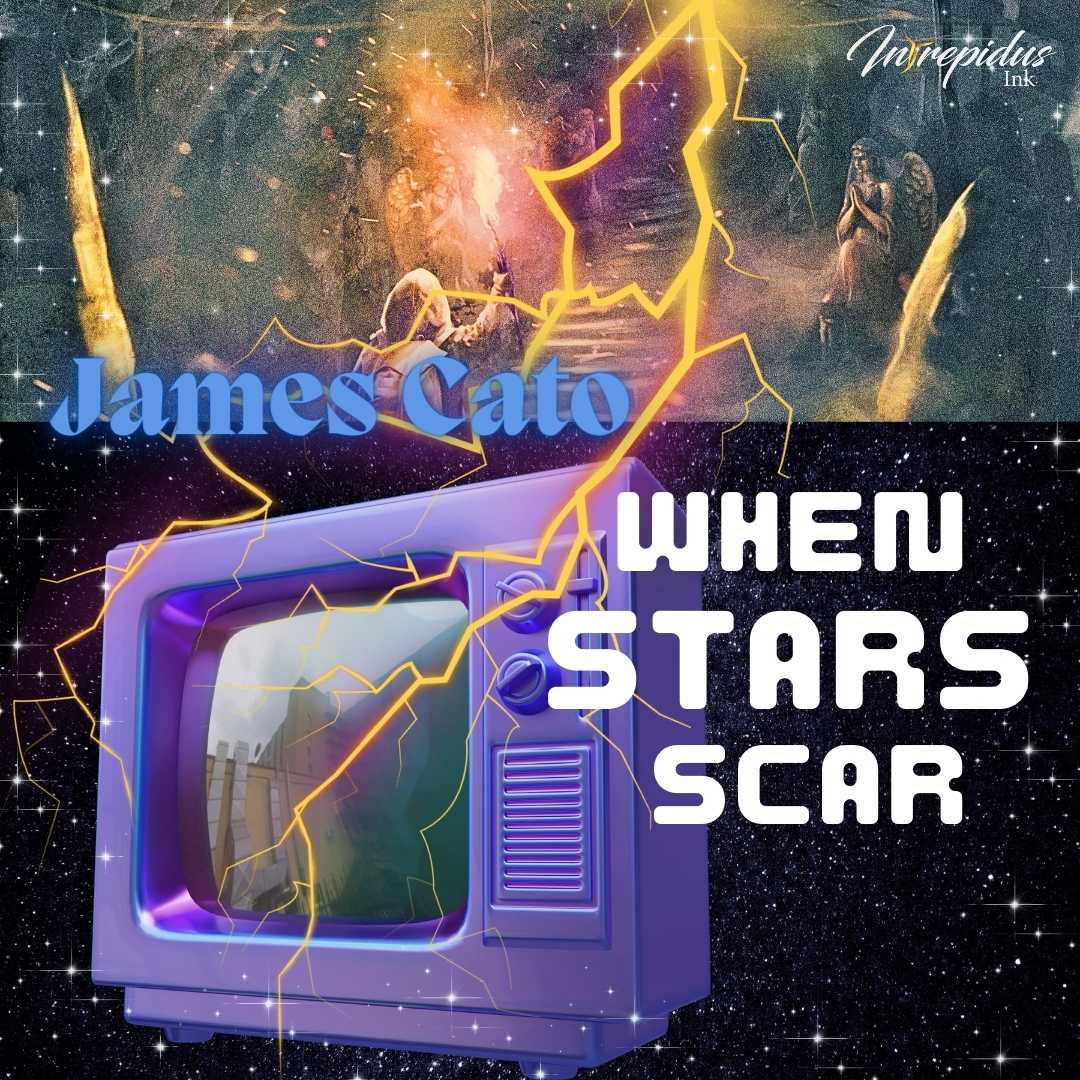

Speculative Fiction
T
he first smiting we saw was Trevor Wolfson on the local weather channel. His job was mostly to point at the radar and look polished. Then he was smashed in front of everyone, just like that.
The whole town saw it, too, because that day, a satellite storm spun on his artificial background: Hurricane Tito. Meteorologists warned it would bring mudslides and whipping winds. Kids my age called it the “Tit,” but you were too young for jokes like that. The Tit was coming, people were evacuating, and Trevor Wolfson’s arm exploded right on TV.
God, it looked awful, with the crenelated bone spirals twitching on the ground and his shock and the blood splatting. The suddenness of it all. Trevor was lucky, though. He survived. And the Tit didn’t end up being much more than a loudmouth. For all its moil, it did little in the way of real damage.

You were bent over your vivarium, not paying attention when that first smiting aired. My strange little brother. The middle school bully, Ned, teased you relentlessly; he told anyone who would listen that you were obsessed with girly flowers. Of course, I knew your vivarium was more than flowers. It included self-cycling tributaries, a pond with black tadpoles and rice panicles. You built a tunnel from the window made of mirror shards so that the system got light. Back then, it could fit atop a coffee table.

Trevor’s smiting was the first time something on TV made me scream. You looked up when I shouted, solemn but startled, though your skin couldn’t betray a frightened pale if it wanted to. His inexplicable wound didn’t even make the evening news. It was far from the worst smiting, far from the highest profile.
We huddled around the screen after dinner, hearing about the politicians, sports players, and celebrities that popped like peanuts on live television, much bigger names than Trevor. They disintegrated at dramatic moments, the newscaster said, during a song’s crescendo, for instance, or in the final moments of a ball game.
Nobody knew why, but everyone agreed that these people had been targeted. Almost nobody survived.
I snuck onto Dad’s computer later that night to watch the attacks, which were censored on TV. The new Secretary of State in Norway shimmered momentarily as a judge swore him in, then burst into fistfuls of red and purple tissue. His family shrieked, trying to make sense of the spine curled like a Shepard’s crook where their man had once stood. Apparently, the guy was controversial, with a few affairs under his belt (so to speak).
Mean comments ensued below the video. “Reap what you sow,” and such.
Another notable victim was Shen Koo, a synchronized diver in the Olympics. His handsome angular face appeared all over the internet, a bona fide cutie. People joked about his decidedly homelier diving partner Liu, but during their event, Shen Koo was blasted into bits mid-flip and Liu was not. They fished Shen’s remains from the filters, and each warped bone came out with those tiny turreted notches twisted into spirals.
Why, the world mused, was Shen smote, but Liu spared?

You and I started spending lots of time together when school closed down. Families clung together, stocking up on supplies, digging into their dens. Even Dad, the passionate atheist, bought us a few cheap plastic crucifixes, soapy white things with sharp seams, and made us carry them around like rabbit’s feet. We also caught him with a clean new .380 in his bedroom, just holding the thing.
We took comfort in the clammy musk of the basement, the baskets holding our childhood toys, and the rough hotel-like carpet. Plus, we speculated, perhaps people couldn’t be smote underground. The vivarium gained muskgrass and bluebottle flies. I unplugged our television, putting an end to all traumatizing surprises, albeit reluctantly, wondering: without this, how else were we connected to the world?

Meanwhile, some folks decided they had all the information they needed. For a while, only large wealthy countries like the United States, China, and Russia suffered smitings. Suspicions followed that some developing country had invented a mysterious weapon and was using it to bring the most powerful powers to their knees. We received numerous citizen petitions circulating online suggesting we nuke specific nations in retaliation; many Americans suspected Pakistan or Ukraine, citing dubious evidence.
Worse, our own neighborhood hosted a chapter of the Refresh cult. They recruited at night, thumping on people’s porches and peering in windows, pleading in undulating tones for the downfall of modern vices, the corrupting media, and our government that sponsored wicked ways. God, in their opinion, was punishing us. It was a common notion. Parents of our friends joined. The cult peaked during a demonstration in Washington DC, beaming laser pointers at the capitol, threatening revolt with their inchoate moaning, that patented chthonic chant. Then their lead speaker was smote on the steps like a firework. After that, Refresh retracted into a radical segment that fled to the woods.

Who would have guessed then that I would be the one to figure out what was going on? Ned harassed me in school for sucking at math, and he was right. I was no scientist. Really, we have you to thank. The government got physicists and inventors, and weapons specialists to parcel out the mysterious killings, but my odd little brother inspired our salvation. Of course, I’m not talking about your own smiting. That made it personal, but that’s not what I mean.
What I mean is this: when they shut down talk shows and newsrooms and concerts, and people hunkered in their homes and started cults and conspiracy theories, you started collecting roadside litter. You’d built the vivarium a soil layer, complete with arthropods, worms, and springtails, then inserted trash into what became a state-of-the-art compost bin. Absolutely genius. I went along because Dad said you needed supervision—who knew what biblical event would come next—and one day, we found a live rabbit with tread marks over one foot. Dad wanted to put her down. Instead you added her to the vivarium.

It’s hard to overstate how seamlessly we transitioned into an era of paranoia, new religion, fear-based ethics. Grocery stores stayed open. Households adopted new rituals and joined cults but continued wearing sweatpants. Most accepted the times as definitive evidence of a higher power. One night, I caught Dad cutting foil from a wine bottle with drunken deliberation, head bowed as if in prayer, bottles huddled around him like a friend group.
Even though smitings were waning in frequency, dangerous conspiracies continued to boil out of the wood. Our mayor proclaimed that vegans performed the acts in cooperation with a secret society, since no animals had been targeted. New hate groups ensued, old categories irrelevant, as the smitings followed no racial, ethnic, or religious bias. Dad drank late at night to avoid frightening us, empty vessels cleared by morning.
Another hypothesis that gained traction was “trophy hunter aliens” who were picking off legendary humans with galaxy-range sniper weapons. This theory at least explained the exclusively famous or at least sort-of-famous victims. However, a few lucky world leaders remained untouched, boxed away, only appearing via audio recordings to address their nations. Of course, many believed these messages were forged, that our leaders secretly laid in smoking piles of crenelated spirals, that a new world order controlled us all, but no one had proof. Dad left the couch so rarely that a dark crease formed in his spot.

We saw lots of roadkill on our compost hunts. Deer strewn like ribbons across fast lanes. A mama turtle mashed on her futile trek. We took in anything alive—the flightless songbird that made a noise like CACK and “Dingus” the kinked snake. They all had scars from tire cleats, deep wounds that would never quite disappear.
Even Dad pitched in eventually, setting up a chicken wire animal hospital in the corner of the kitchen. Tending to injured critters helped distract him from all of the uncertainty. Once he built the hospital, the secret notches I was making in his liquor bottles to track his drinking stopped moving down and his cheeks tightened in a healthy way.
By then, your vivarium took up the entire basement, and word had gotten around. Neighbors visited to watch creatures explore and plants fill in. Local newspapers called it Noah’s Ark, a rehabilitation center. A Youtuber asked to live stream the place and interview you. Hundreds of thousands of viewers tuned into your D.I.Y. zoo. Twenty minutes later, you were gone forever. Dashed like a piñata in front of us all.
I miss you every day.

It clicked, then. No deity or government or secret society would attack you. You, who ignored the news, you who had done no wrong, you who had attained no fame, wealth, or power. Your tiny spiraled bones fused into the floor reminded me of the tire tracks on the animals. All the theorists attributed these deaths to a technological or spiritual attack. But really, we were roadkill. Like the animals. Dead by accident. Smashed by extraterrestrials.
See, scientists thought the brain was the most complex thing in the universe. Thought. But smitings had waned since TV and big gatherings shut down. I shared my roadkill hypothesis to everyone I could, internet forums and podcasts and town halls. It made a lot of sense. I knew what the aliens would look like—crenelated spirals. A few astronomers caught wind and strafed the night sky with telescopes. Young scientists, friends of friends spurred by curiosity, searched for traces of movement faster than light.
It took them mere weeks to discover a planet full of these shapes. The organisms resembled a fungus, shifting through the oceans, connecting and disconnecting and vanishing. Another planet of crenelated spirals inhabitants was documented, and another. These aliens teleported to visit others of their kind and landed on the center of their cousins’ tendrils to share nutrients and communicate.

Despite some scrutiny, I pushed back against the invader label. I felt that, like us, these sentient hive-mind beings believed their anatomy to be more complex than any natural space formation, any sun or planet or rock, and used that organized energy like a homing beacon. It worked—except when our almost-as-complex brains conglomerated on a focal point.
Just imagine: millions of human brains tapped into a single quarterback, president, or live performance, an event streamed by satellite to digital pictures across the globe. The flow of energy resembles a huge sentient fungoid system. So sometimes they teleported to whatever we were all looking at, disintegrating it. They didn’t know until it was too late that they were landing atop a person on the wrong side of the universe.
So it was no coincidence that every pair of eyes in our state was watching Trevor Wolfson’s pointing arm as he emphasized the danger of the impending storm and urged us to evacuate. Nor was it happenstance that the inauguration of the Secretary of State in Norway inflamed his constituents. Shen Koo, too, blessed with beauty, died because of the focused cameras favoring his body over Liu’s, making his flip the crux of attention.
Anyways, little brother, now I have a platform, the winning theory traced back to me. Scientists set up dedicated satellites to beam signals away from Earth, acting both as a force field and a “deer x-ing” sign. You saved us from becoming roadkill too. By the way, your vivarium thrives. Dad and I clip the plants from time to time, but it basically takes care of itself. I don’t know where people go after a smiting, but I thought I’d write you a love letter after all these years. I’m not only sending it to you. I’m copying everyone I know and publishing in journals, so that thousands of brains will know what you did and who you were. In that great web, I hope it reaches you somehow.
Yours.

Author Bio

James Cato is an environmental organizer in Pittsburgh, where he lives with his lizard, Bocci, and his snake, Sleeves. His writing is published or forthcoming in Reckoning, SmokeLong Quarterly, The Forge, and Daily Science Fiction, among other places. He tweets humbly @the_sour_potato, and his first collection, “Becoming Roadkill,” is coming soon from Red Bird Chapbooks. Read more stories by James on his website.

